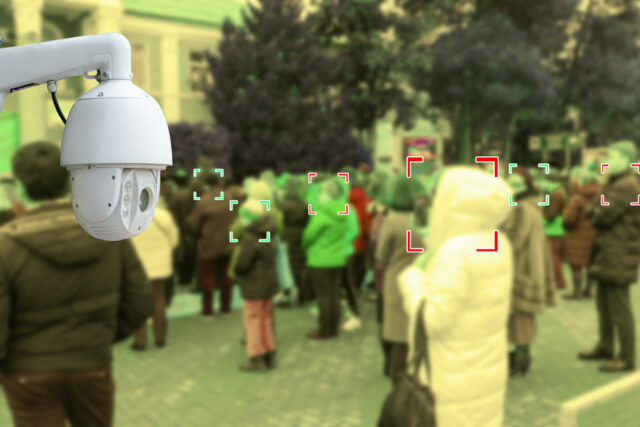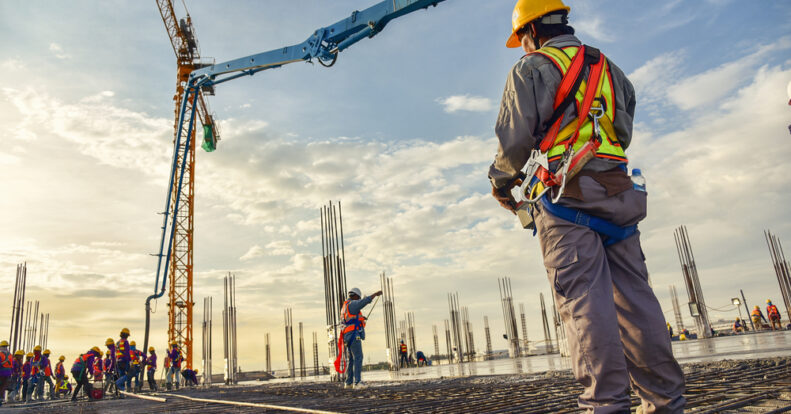
6 pros and 3 cons of CCTV cameras in public places
6 pros and 3 cons of CCTV cameras in public places
The more cameras there are on the streets and in public places, the more controversy it creates over privacy and security. This topic is especially relevant today in Russia: our country has just entered the era of the massive use of video surveillance systems. For some people, the widespread placement of video cameras violates personal space and invades privacy. For others, CCTV cameras are the key to security and peace of mind. Video surveillance pros and cons is the topic of our article. Let’s figure it out.
Statistics of surveys in the Russian Federation
In the middle of last year, RIA “Novosti” published the results of a study on the topic “The attitude of Russians to video surveillance in the streets.” The author of the opinion poll is Delta Security Systems company.
The place of the survey is Moscow.
The number of respondents is 1500 people.
The age of the respondents is from 18 to 65 years old.
Research results:
- 88% of survey participants said that video surveillance is a necessity for ensuring the safety of society;
- 6% were categorically against, believing that video monitoring in public places, streets and entrances violates their privacy and the right to confidentiality;
- 45% of respondents are sure that any property needs a video surveillance system;
- 49% of the respondents said they are ready to install video cameras in their homes;
- 14% of the participants said that the panic button was enough for security;
- 28% of respondents prefer video filming.
What is considered a public place in the Russian Federation?
The current Russian legislation norms do not contain an exact and literal term “public places / public place”. However, legal practice says that the definition must be sought in the Land Code and the Administrative Code and several federal laws.
Also, regional and local governments have the right to publish their lists of public places. For example, the Stavropol Territory authorities of the Slavyansky District published an approved list of public places back in 2010.
Today, several signs can be formulated to indicate the presence of a public place:
- Areas of mass visits of an indefinite number of citizens.
- Places, territories and real estate objects that are not private property, do not have access restrictions and are designed to meet the population’s needs (educational, sports, medical, shopping and others).
Public spaces and video surveillance
Until 2015, the process of video surveillance in public places was not subject to government regulation. However, with the emergence of a serious terrorist threat in the Russian Federation, Government Decree No. 272 was developed (the date of entry into legal force on September 25, 2015). According to the document, all crowded places (over 50 people) must be equipped with continuous video surveillance systems. In this case, a prerequisite is the storage of the video archive for at least 30 days.
The law covers hospitals, schools and kindergartens, sports buildings and facilities, government agencies, train stations and airports, shopping and entertainment centres, banks, and all other objects where people’s mass gathering is possible.
6 advantages of video surveillance in public places
Video surveillance in public places has several advantages:
- The benefits of progress.
Video cameras, especially network or IP cameras, are a modern tool and a sign of a civilized society, facilitating many processes.
- Convenience and economy.
For example, one panoramic video camera can replace 10 to 20 conventional cameras, and the maintenance of video recording equipment is much cheaper than maintaining a staff of security guards. Concerning government agencies, we can talk about the country’s budget burden reduction.
- Objectivity.
CCTV cameras are impartial and objective. They are not prone to corruption, bribery and deliberate data corruption. And video surveillance, plus the use of cloud storage, eliminates the possibility of a human factor.
- The growth of public safety.
The purpose of installing cameras in public places is to track crimes and offences. Accordingly, they are a deterrent to their implementation. You can read about the positive impact of video surveillance on human psyche here.
- Reduction of crimes and offences.
Official statistics say the installation of CCTV cameras reduces crime rates. For example, according to the Moscow region’s press service, the massive introduction of video cameras in public places since 2015 in the area, has decreased crimes by 30%. In the region, plans for 2021 are to reduce the number of crimes and offences by 10-15%.
- Assistance in the investigation of incidents, collection of evidence, including the capture of criminals and offenders.
Full information on this is in the article “Investigation of events using video surveillance“.
3 cons of video surveillance
Cons of video surveillance:
- Possible data loss.
Most people are concerned about the preservation of their data, while 81% of Internet users are actively posting personal photos and data on social networks. Also, quite often, media publishes information about the loss of a large amount of data (banking, telecom operators). Therefore, it causes video surveillance fear in public.
- Potential abuse.
Yes, abuse is possible. Many fear blackmail, voyeurism and harassment. However, many more risks arise when using video surveillance at home. Also, the installation of cameras in showers, bathrooms, washrooms and changing rooms is prohibited.
- Fears and subjective opinion.
“There is radiation from your cameras, so everyone gets cancer.”
“I don’t go to shops where cameras are installed.”
“Constantly supervised, like prisoners.”
“They steal anyway, no matter how many cameras you put in”…
Such claims are subjective and based on knowledge gaps and fears which will never come true.
Conclusion
By itself, video surveillance cannot have an emotional connotation, pros or cons, positive or negative sides. All the signs that a person “endows” technology with refer to the person himself, his conclusions and his attitude. Based on this, Faceter strives for an open dialogue with customers, explaining modern video surveillance’s real possibilities.














